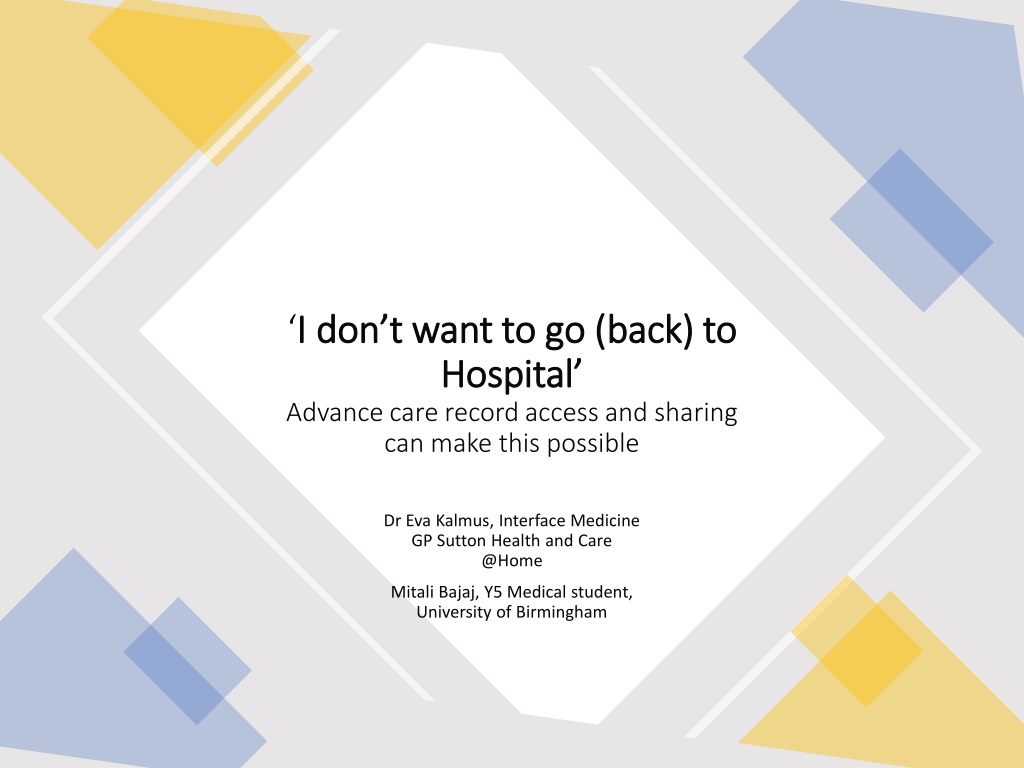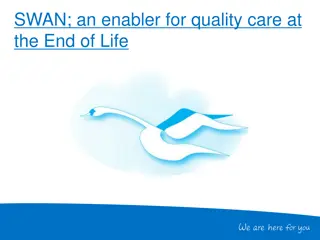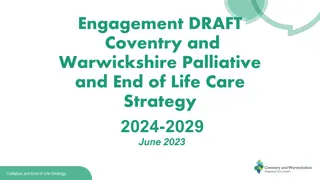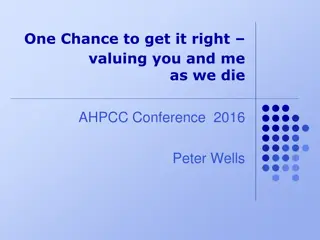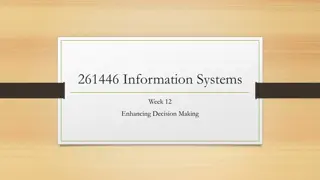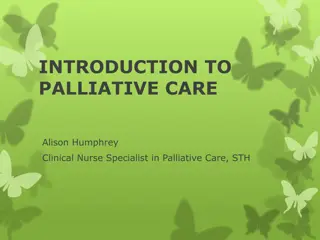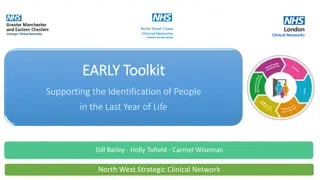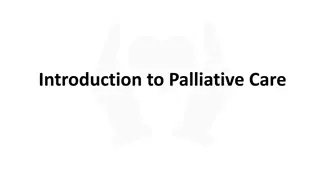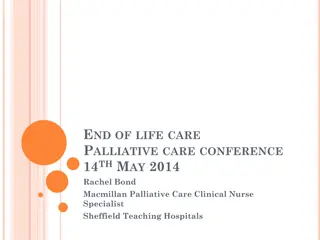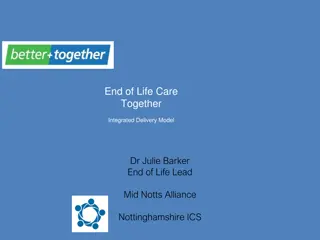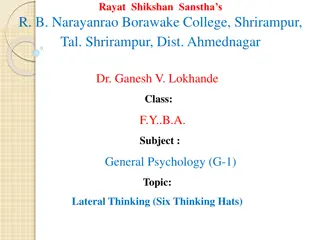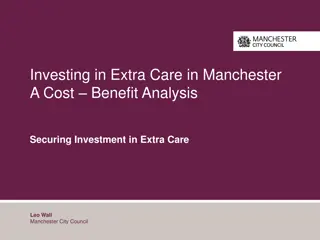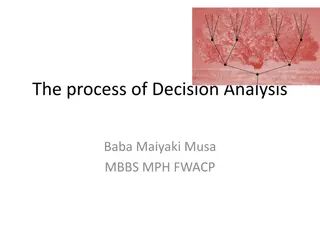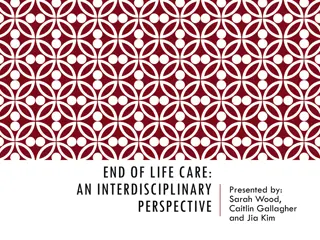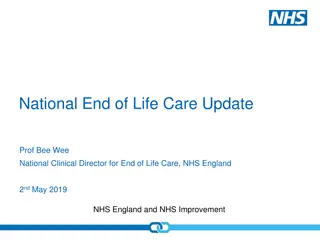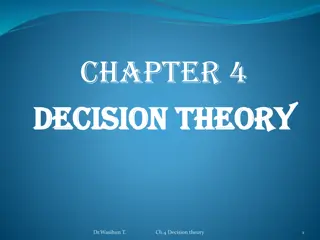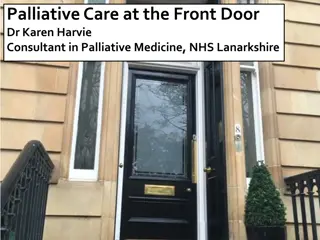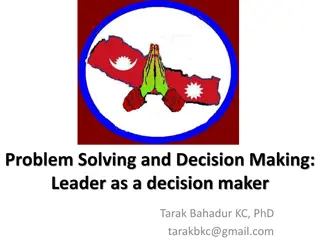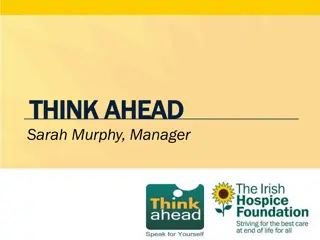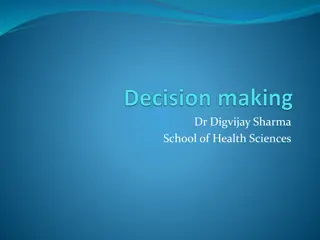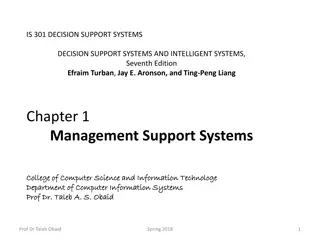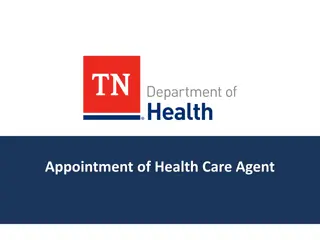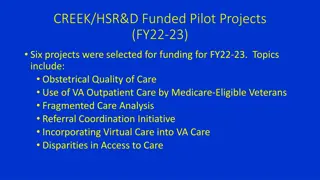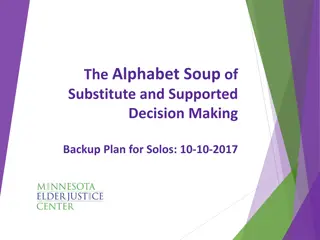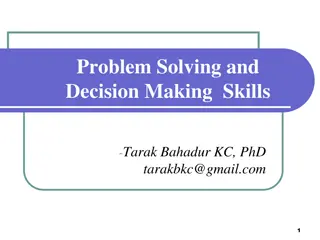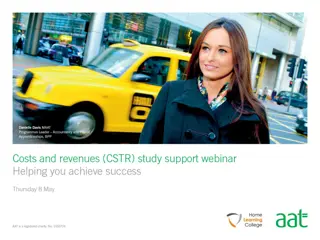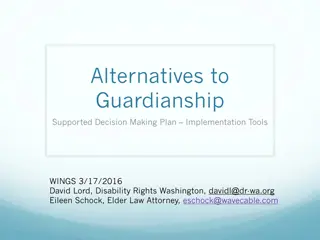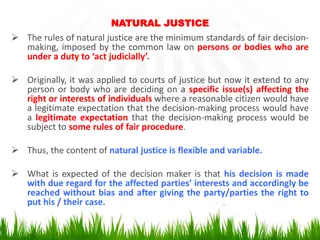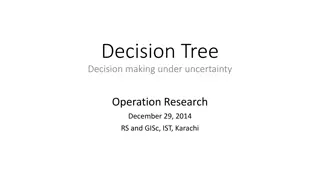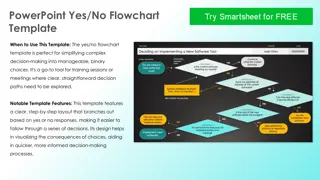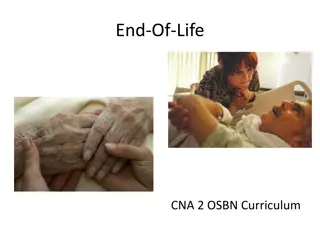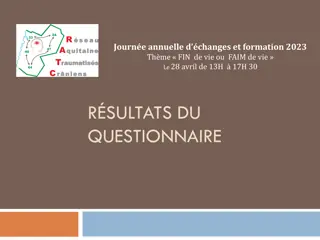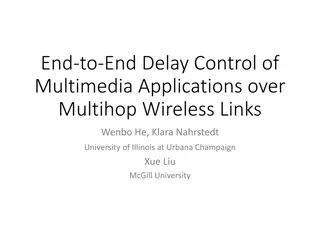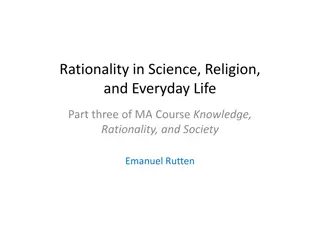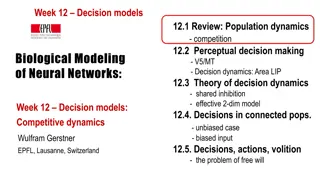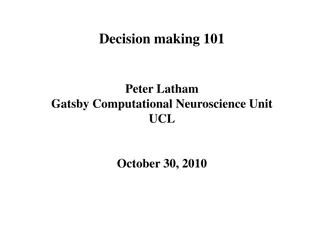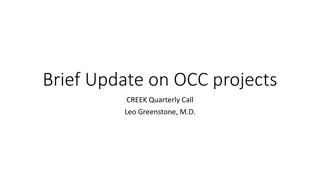Improving End-of-Life Care Access and Decision Making
Enhancing advance care planning (ACP) access and sharing can improve end-of-life care experiences, reduce inappropriate interventions, and address patients' wishes effectively. The project aims to increase awareness of existing ACP records, facilitate good ACP discussions, and provide training on creating electronic ACP records for decision-making across different care settings. Key findings reveal a gap in ACP record availability among severely frail admitted individuals. Case studies illustrate the importance of ACP in guiding care decisions for elderly patients with complex healthcare needs.
Download Presentation

Please find below an Image/Link to download the presentation.
The content on the website is provided AS IS for your information and personal use only. It may not be sold, licensed, or shared on other websites without obtaining consent from the author. Download presentation by click this link. If you encounter any issues during the download, it is possible that the publisher has removed the file from their server.
E N D
Presentation Transcript
I dont want to go (back) to I don t want to go (back) to Hospital Hospital Advance care record access and sharing can make this possible Dr Eva Kalmus, Interface Medicine GP Sutton Health and Care @Home Mitali Bajaj, Y5 Medical student, University of Birmingham
Project background Aims Methodology Our findings Overview Case studies Discussion of limitations Implications References and Acknowledgements
Background Good ACP & shared access improves experience of EoLC (1,2) ePaCCS (e.g. CMC) are seldom accessed in secondary care (3) Inappropriate admission Inappropriate interventions Lengthening of hospital stay Patients wishes left unacknowledged Severe frailty is an end-of-life state For people with frailty, CGA is a useful identification tool to direct a focused care plan
Aims Increase awareness of and facilitate access to existing ACP records and to incorporate this into decision making Facilitate and support good ACP discussions Provide training around creating electronic ACP records based on decisions during the current patient stay to be shared across settings
Setting: acute frailty ward in SHH Impact measurement: Number of CMC logins, frailty scoring Data collection: trust records, CMC, data management team Pilot Intervention: interface GP provided twice-weekly support from Feb 2021 MDT handover on frailty ward w/ alerts for ACP records Programmed and ad-hoc ACP training sessions Support for CMC logins and access Methodology
Key finding On average, 66% of over 65s admitted were severely frail, yet less than 25% had an existing ACP record.
Case studies Mrs G, 85F Mr F, 92M Admitted to ED: oral intake & drowsiness from nursing home with late stage dementia Available CMC: Preferred place of care NH Preferred place of death NH DNACPR LPOA son with contact details DC to NH with clear escalation plan & referral to Palliative care BG: dementia but mobile and able to talk Fall, UTI, 6/52 in SHH. COVID big step down DC home with 2 carers QDS, bedbound, equipment 4/7 later re-admitted drowsy, oral intake Died 2 days later in SHH on AMU Opportunities were missed to have an ACP conversation at all stages ACP conversations & shared access allowed patient s wishes to be met for EoLC
Key findings On average, 66% of over 65s admitted were severely frail, yet less than 25% had an existing ACP record need to have, document and share the right conversations 11 new CMC logins were created continue to increase awareness and integration of ePaCCS Case studies show the value of ACP champions and cultural shift to provide good EoLC embed changes for sustainability Feedback suggests interest in incorporating ACP into decision making
A rapid rotation of staff Frailty ward as a novel pathway for the trust Discussion of limitations Training dates rescheduled due to the pandemic The trust covers areas that use both ePaCCS and paper-based ACP records Inaccuracies in the trust s alert system for ACP records
Implications Good ACP & shared access improves experience of EoLC (1,2) Going forward: Designate ACP champions Raise awareness of ePaCCS across the trust Facilitate access clinician and admin logins Support integration of electronic ACP click-through access from summer 2021, new MDT handover rolled out across the trust Liaise with quality improvement, palliative care, frailty team, community services Measure outcomes repeated PDSA cycles Embed changes for sustainability Good EoLC factors 1.The right conversations 2.Documented well 3.Shared appropriately 4.Accessed when needed 5.Kept up to date
References and Acknowledgements 1. Orlovic, M., et al., (2020) Impact of advance care planning on dying in hospital: Evidence from urgent care records , PLOS ONE, 15(12), pp.e0242914. doi:10.1371/journal.pone.0242914 2. CQC. (2021) Protect, respect, connect decisions about living and dying well during COVID-19 Available at: https://www.cqc.org.uk/publications/themed-work/protect- respect-connect-decisionsabout-living-dying-wellduring-covid-19 3. 3. Brinkman-Stoppelenburg A.; Rietjens J.A.C.; Van Der Heide A. (2014) The effects of advance care planning on end-of-life care: A systematic review, Palliative Medicine; 28 (8); p.1000-1025 Available at: https://pubmed.ncbi.nlm.nih.gov/24651708/ Many thanks to the following teams for their support; Frailty MDT, palliative care, ED team, acute medicine division, IT, data quality, service improvement, data management, CCG EoLC strategy group, PCNs Health Innovation Network, London
